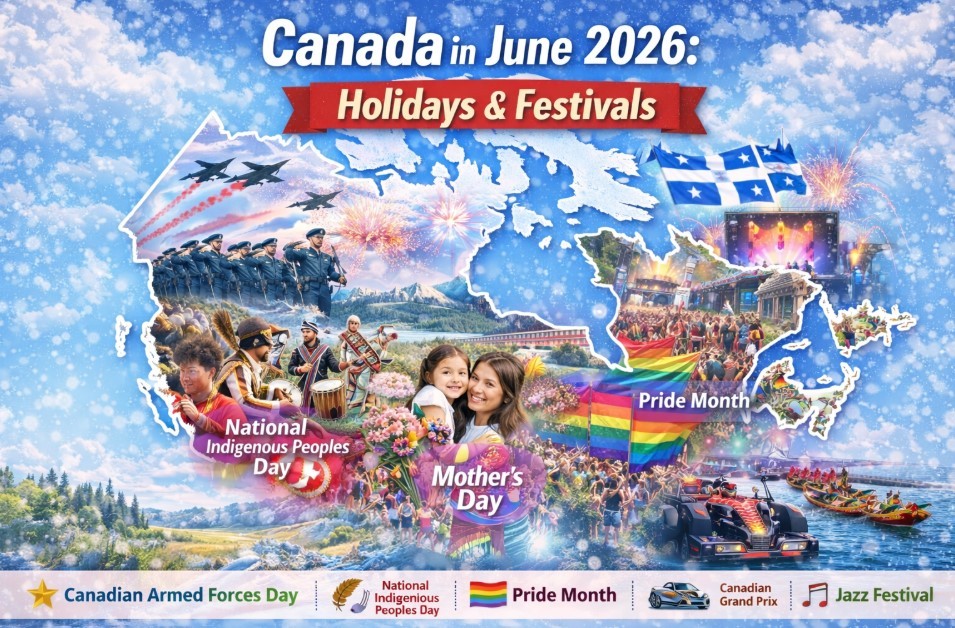2025 Canada Calendar - Full List of Public Holidays And Observances: Dates, Activities
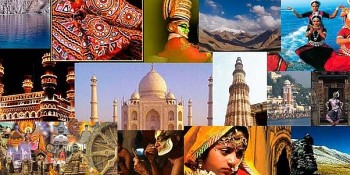 India Calendar 2025 - Full List of National/Regional Public Holidays: Dates and Celebrations India Calendar 2025 - Full List of National/Regional Public Holidays: Dates and Celebrations |
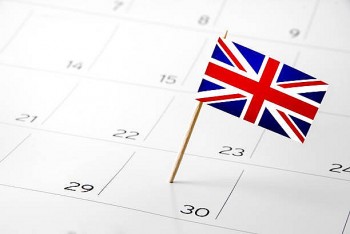 2025 UK Calendar - Full List of Public Holidays And Observances: Dates and Celebrations 2025 UK Calendar - Full List of Public Holidays And Observances: Dates and Celebrations |
As 2025 approaches, Canadians prepare for a year filled with a variety of public holidays and observances. Each province and territory has its own unique holidays in addition to national celebrations.
Here’s a comprehensive guide to the public holidays and notable observances in Canada for 2025.
An Overview of Public Holidays And Observances in Canada
 |
| Canada 2025 Yearly Calendar |
Canada is known for its cultural diversity, which is reflected in the variety of public holidays and observances celebrated across the country. These holidays include national statutory holidays, regional holidays, and special observances that honor the country’s rich heritage and multicultural society. Here is an overview of the key public holidays and observances in Canada:
In 2025, Canada Day falls on a Tuesday. It is a statutory national holiday. Without a doubt, a lot of people will attempt to extend this holiday into a four-day weekend by skipping Monday.
Good Friday, April 18, is Easter in 2025, and Easter Sunday falls on April 20. April 21st, 2025, is Easter Monday. There is no set date for Easter. Since Easter falls later in 2025, there will be a two-month break without holidays following Family Day, Independence Day, and Heritage Day.
The year 2025 will mark Remembrance Day on a Tuesday. While not observed in every province or territory, it is a federally mandated holiday. In Ontario, Quebec, Northwest Territories, and Nova Scotia, it is not a holiday. The question of whether Remembrance Day should be observed as a national holiday in Canada is still up for debate.
In 2025, Christmas falls on a weekday: Boxing Day falls on Friday, and Christmas Day falls on Thursday. This implies that, in the majority of workplaces, taking a week's leave of absence without consulting your colleagues is unnecessary because, in 2025, Christmas weekend will automatically be extended.
The date of the National Day for Truth and Reconciliation is September 30, 2025, a Tuesday. Because it's exclusive to workers subject to federal regulations in some provinces, this relatively new holiday has generated controversy. It is a general public holiday in the Northwest Territories, British Columbia, Manitoba, Prince Edward Island, and Yukon.
The Most Popular National Holidays and Regional Holidays in Canada 2025
| DAY | DATE | HOLIDAY |
|---|---|---|
| Wednesday | Jan 01, 2025 | New Year's Day |
| Friday | Feb 14, 2025 | Valentine's Day |
| Saturday | Feb 15, 2025 | Flag Day |
| Monday | Feb 17, 2025 | Family Day (AB, BC, SK, ON) |
| Monday | Mar 10, 2025 | Commonwealth Day |
| Monday | Mar 17, 2025 | St. Patrick's Day |
| Friday | Apr 18, 2025 | Good Friday |
| Sunday | Apr 20, 2025 | Easter Sunday |
| Monday | Apr 21, 2025 | Easter Monday |
| Monday | May 19, 2025 | Victoria Day (Many regions) |
| Tuesday | Jul 01, 2025 | Canada Day |
| Monday | Aug 04, 2025 | Civic Holiday (Many regions) |
| Monday | Sep 01, 2025 | Labour Day |
| Tuesday | Sep 30, 2025 | Truth and Reconciliation Day |
| Monday | Oct 13, 2025 | Thanksgiving Day |
| Friday | Oct 31, 2025 | Halloween |
| Tuesday | Nov 11, 2025 | Remembrance Day (Many regions) |
| Thursday | Dec 25, 2025 | Christmas Day |
| Friday | Dec 26, 2025 | Boxing Day (Many regions) |
Public Holidays And Observances in Canada 2025: Dates and Celebrations
January 1 - New Year's Day, Statutory Holiday
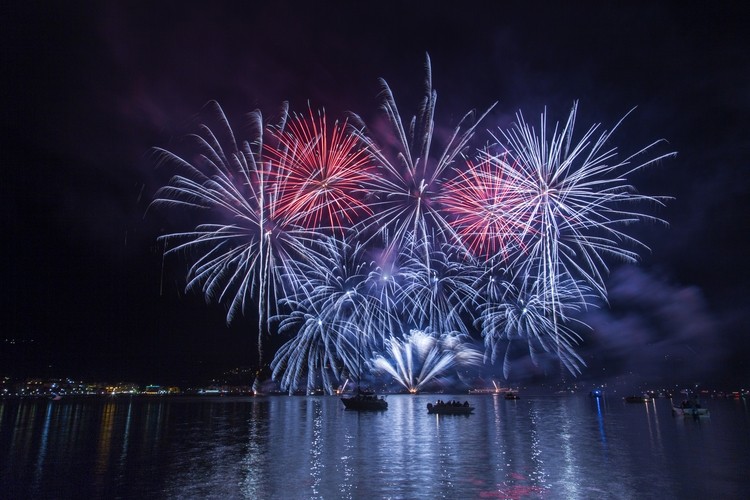 |
| New Year's Day |
According to the Gregorian calendar, New Year's Day is the first day of the year and occurs precisely one week after Christmas Day of the previous year.
Except for Israel, every nation that uses the Gregorian calendar observes New Year's Day as a public holiday. As a result, it is the public holiday that is observed the most globally.
January 2nd may be an additional New Year's holiday in some countries. On January 14th, those nations that still employ the Julian Calendar celebrate New Year's Day.
Around the world, fireworks are traditionally lit at 0:00 in the local time zones to commemorate it.
January 2 - Last day of Hanukkah, Jewish holiday
The final day of Hanukkah, also known as the Festival of Lights, is celebrated by Jewish communities in Canada with the lighting of the menorah, prayers, and festive meals. This day marks the end of the eight-day celebration.
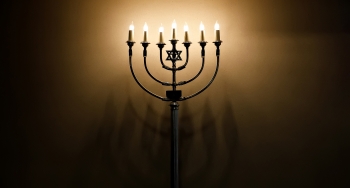 Happy Hanukkah - Jewish Holiday: Meaning, History and Celebration Happy Hanukkah - Jewish Holiday: Meaning, History and Celebration |
January 2 - Day After New Year’s Day (Quebec)
In Quebec, the day after New Year's Day is a public holiday. Many businesses remain closed, and people use the day to rest and continue celebrating with family and friends.
January 6 - Epiphany, Observance
Epiphany, also known as Three Kings' Day, commemorates the visit of the Magi to the baby Jesus. It is observed by many Christians in Canada with church services and special meals.
January 7 - Orthodox Christmas Day
Orthodox Christians in Canada celebrate Christmas on January 7 according to the Julian calendar. Traditions include attending church services, singing carols, and enjoying festive meals with family.
January 14 - Orthodox New Year
Also known as the Old New Year, this day is celebrated by Orthodox Christians with traditional foods, music, and gatherings. It marks the start of the new year according to the Julian calendar.
January 27 - Isra and Mi'raj (Tentative Date)
Isra and Mi'raj is an Islamic observance marking the Prophet Muhammad's night journey and ascension to heaven. Canadian Muslims observe this day with prayers and special sermons in mosques.
January 29 - Lunar New Year, Observance
Lunar New Year is celebrated by various East Asian communities in Canada. Festivities include family reunions, feasts, dragon and lion dances, and the exchange of red envelopes containing money for good luck.
February 2 - Groundhog Day, Observance
Groundhog Day is a popular tradition where Canadians observe whether groundhogs see their shadow, predicting the length of the remaining winter. Events are held in places like Wiarton, Ontario.
February 13 - Tu B'Shevat (Arbor Day), Jewish holiday
Tu B'Shevat, also known as the New Year for Trees, is celebrated by Jewish communities with tree planting and environmental awareness activities. It often includes eating fruits and nuts associated with the land of Israel.
February 14 - Valentine's Day, Observance
Every year on February 14th, we celebrate the day of love, or Valentine's Day as we call it. It's also known as Saint Valentine's Day or the Feast of Saint Valentine.
Since ancient times, February has also been regarded as the month of romance and love. On February 14th, lovers exchange unique gifts with one another, such as jewelry, roses, or chocolates.
On this day, a lot of people also use the chance to publicly declare their love for their crushes, who are frequently concealed as admirers.
Since it's not a federal holiday, companies and educational institutions are open as usual.
Read More: Valentine’s Day: Top 10 Most Popular Recipes for Love
February 15 - National Flag of Canada Day, Observance
 |
| National Flag of Canada Day |
On National Flag of Canada Day, many buildings—including private residences—fly the Canadian national flag, commonly referred to as the "maple leaf flag". There are those who wear pins shaped like flags. Around this time of year, a lot of schools have extra classes on the history of the Canadian national flag.
Every year, there are public events of special interest. For instance, as part of the "One in a Million National Flag Challenge" in 1996, one million flags were distributed so that Canadians could fly them on Flag Day in 1997. In 2005, there were festivities to mark the 40th anniversary of the flag's adoption. Some companies handed out flags or used big replicas of the red and white maple leaf flag to adorn buildings. Recently, there has been a push to declare Flag Day a national statutory holiday.
In Canada, Flag Day is not a legally recognized holiday. Public transportation services operate according to their regular schedules, and schools, organizations, businesses, and stores are open.
February 17 - Louis Riel Day (Manitoba)
Manitoba celebrates Louis Riel Day on the third Monday of February. It honors Métis politician Louis Riel.
Manitobans can spend time with family, take a winter break, or play outdoor sports on Louis Riel Day. Learning about Métis culture, language, heritage, and ancestral homeland is also possible.
Manitoba has a general holiday on February 3. People take a day off work and school, and many businesses, organizations, and stores close. Some towns open stores after noon. Public transit may operate on Sundays or holidays. Rural areas may lack services.
Alberta, Ontario, and Saskatchewan celebrate Family Day on the third Monday of February. Many people take a day off work and schools are closed. Many businesses and organizations are closed, but post offices may be. Public transportation may operate at reduced or regular hours.
Other Canadian provinces and territories do not observe Louis Riel Day or Family Day on the third Monday of February. School, business, organization, post office, and store hours and public transportation schedules are unchanged.
February 17 - Nova Scotia Heritage Day (Nova Scotia)
Nova Scotia Heritage Day will celebrate provincial heroes and events on the third Monday in February starting in 2015.
Provincial government, schools, and most businesses will be closed on Nova Scotia Heritage Day.
But federal government offices and national businesses like banks, airlines, and railways are open.
Check your local transit office for bus and train schedule changes.
Human rights activist Viola Desmond (July 6, 1914 – February 7, 1965) challenged racial segregation at a New Glasgow film theatre in 1946. She was convicted of segregation-based tax violations for refusing to leave a whites-only theater. Her fame inspired provincial equal rights activists to end segregation.
Viola's sister Wanda Robson spoke at a 2010 government ceremony apologizing and pardoning her. Canada granted its first posthumous free pardon.
Nova Scotia Heritage Day is always on a Monday, so people can take advantage of a long weekend to travel, visit friends and family, or relax at home.
It will share the same day with other Canadian holidays, such as Family Day.
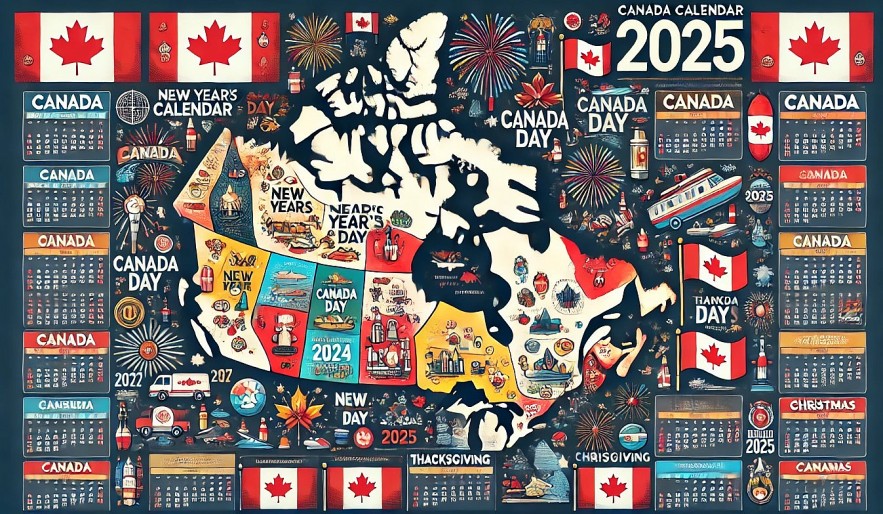 |
| 2025 Canada Calendar |
February 17 - Islander Day (PE)
People in Prince Edward Island get a holiday on the third Monday of February, which is Islander Day. Today is a holiday, so people can take it easy or take a short winter break.
A lot of people in the province of Prince Edward Island get extra time off on Islander Day. Many businesses and schools are closed, and people who work for the provincial government get the day off. However, people who work for the federal government in the province may have to choose between Islander Day and their August holiday, which is called Natal Day.
On Islander Day, many people in the province don't have to work or go to school. People have time to rest, relax, and do personal things over the holiday. The idea behind this holiday is to honor family and community as well.
February 17 - Family Day (AB, BC, NB, ON, SK)
Family Day is only observed in New Brunswick, Alberta, Manitoba, Ontario, Saskatchewan, and British Columbia; it is not a federally recognized holiday.
While other provinces celebrate the same day in February, it's not known as Family Day. The third Monday in February is designated as Louis Riel Day holiday in Manitoba and as Islander Day in Prince Edward Island. This day is recognized as Heritage Day in Nova Scotia.
Family Day was first established as a way for people to spend time with their families, but it also serves as a day off between Good Friday and New Year's Day, which fall about three months apart.
All federal employees, including post office workers and public servants, are required to work on Family Day since it is not a federally mandated holiday.
February 21 - Yukon Heritage Day (Yukon)
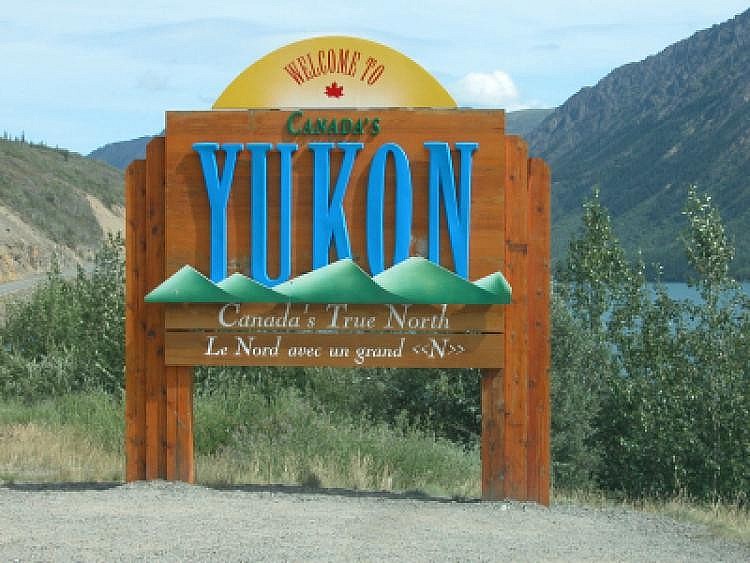 |
| The Yukon's Heritage Day is held in the territory every year |
A lot of people in the Yukon, Canada, celebrate Heritage Day, which is held every year on the Friday before the last Sunday of February.
People in the Yukon don't have to work or go to school today. The Yukon Sourdough Rendezvous is a winter party that people in the territory can attend every year. It is usually held in Whitehorse, which is the capital of Yukon.
Heritage Day in the Yukon is marked on the calendars of schools and museums all over the territory. As part of Yukon's Heritage Day, different competitions, such as writing or drawing contests, may be held in the territory at this time of the year or close to it. In the Yukon, some communities may hold events to honor their history.
March 1 - Ramadan Start (Tentative Date)
The ninth month on the Islamic calendar is Ramadan, which is also written as Ramadan, Ramzan, or Ramadan. For Muslims in Canada, this is a time to pray, fast, give to others, and take responsibility for their actions. The Prophet Muhammad (also written as Mohammad or Muhammed) received the first verses of the Koran (Qu'ran) in the last third of Ramadan. This is a very holy time of year.
Saturday, March 1, 2025, is Ramadan Start, but it is also a work day. In Canada, most stores have set hours when they are open.
March 1 - St David's Day, Observance
St. David's Day is celebrated in Canada by Welsh communities and those with Welsh heritage to honor St. David, the patron saint of Wales. Celebrations often include cultural events such as concerts, eisteddfods (Welsh festivals of literature, music, and performance), and wearing traditional symbols like the leek or daffodil. Some people also attend special church services and enjoy traditional Welsh foods, such as cawl (a type of soup) and bara brith (a fruit bread).
March 4 - Carnival / Shrove Tuesday / Pancake Day
Shrove Tuesday, also known as Pancake Day, marks the day before Ash Wednesday and the start of Lent in the Christian calendar. In Canada, it is celebrated by making and eating pancakes, symbolizing the use of rich ingredients like eggs and butter before the fasting period of Lent. Some communities host pancake races and flipping contests. Carnival, especially in regions with large Catholic populations, features parades, masquerade balls, and other festivities, celebrating the last day of indulgence before Lent begins.
March 5 - Ash Wednesday
Ash Wednesday is the beginning of Lent, a 40-day period of fasting and penance observed by Christians. In Canada, many attend church services where ashes, made from the previous year's Palm Sunday branches, are placed on their foreheads in the shape of a cross. This act symbolizes repentance and mortality. Some people also commit to giving up certain luxuries or adopting new spiritual practices during Lent to prepare for Easter. The day is marked by prayer, fasting, and reflection on one's faith and actions.
March 9 - Daylight Saving Time starts
March 10 - Commonwealth Day, Observance
 |
| Commonwealth Day |
Commonwealth Day is celebrated on the second Monday in March across the member countries of the Commonwealth of Nations. In Canada, it is a day to recognize the shared values, history, and culture of the Commonwealth countries. Events often include flag-raising ceremonies, cultural activities, and educational programs. The day is marked by messages from the Queen and other leaders, highlighting themes of unity and cooperation among the diverse nations of the Commonwealth.
March 14 - Purim, Jewish holiday
Purim is a joyous Jewish holiday commemorating the salvation of the Jewish people in ancient Persia from Haman's plot to destroy them, as recorded in the Book of Esther. In Canada, Jewish communities celebrate with festive meals, giving charity, exchanging gifts of food, and reading the Megillah (Book of Esther). It is customary to wear costumes and masks, hold parades, and participate in plays and carnivals, making it one of the most fun and lively holidays in the Jewish calendar.
March 17 - St. Patrick's Day, Observance
St. Patrick's Day honors St. Patrick, the patron saint of Ireland, and is widely celebrated in Canada, especially in cities with large Irish populations. Festivities include parades, wearing green clothing and accessories, and public festivals featuring Irish music, dance, and food. Many people also attend church services, and landmarks are often illuminated in green. The day is a celebration of Irish culture and heritage, with pubs and restaurants serving traditional Irish dishes and drinks.
March 20 - March Equinox, Season
The March Equinox, also known as the Spring Equinox in the Northern Hemisphere, marks the first day of spring. In Canada, it signifies the end of winter and the beginning of longer days and warmer weather. The equinox occurs when day and night are approximately equal in length. Many Canadians welcome the change of season with outdoor activities, gardening, and spring cleaning. It is a time of renewal and anticipation for the upcoming warmer months.
March 26 - Laylatul Qadr (Night of Power)
March 31 - Eid ul Fitr (Tentative Date)
April 6 - Tartan Day, Observance
April 9 - Vimy Ridge Day, Observance
April 13 - Palm Sunday
One of the most important days in the Christian calendar is Palm Sunday, which falls on the Sunday before Easter and signals the start of Holy Week.
Because Palm Sunday is a moveable feast, its date varies annually. Known by many as Passion Sunday, this holiday honors Jesus Christ's entry into Jerusalem as it is described in the four gospels of Matthew, Mark, Luke, and John. It is rich in symbolism, customs, and profound spiritual significance.
The reason Palm Sunday got its name is that when Jesus arrived in Jerusalem in the Bible, people there greeted him with palm branches.
Palm Sunday, a day of serious contemplation and preparation, marks the start of the last week of Lent in Western Christianity. In the East, a longer period of Lent comes before Holy Week.
April 13 - First day of Passover, Jewish holiday
 |
| First day of Passover |
Every year on the 15th of Nisan, Passover, or Pesach in Hebrew, begins and lasts for seven and a half days. Since it honors the Israelites' Exodus from Egypt, it is among the biggest and holiest holidays in Jewish tradition. In Hebrew, Pesach starts with the Israelites' Exodus from Egypt.
The main event of the holiday is the group Seder celebration, which is the first of several special rituals held throughout the week. Although there isn't a public holiday observed during Passover in the US or the UK, Jewish establishments might have altered hours of operation during this week.
April 17 - Maundy Thursday
People in Canada celebrate Maundy Thursday as a Christian holiday. It's the Thursday before Good Friday and is part of Holy Week. The day is also called "Holy Thursday." Many Christian churches celebrate it as a way to remember Jesus Christ's last supper and the start of the Eucharist.
Maundy Canada does not have a holiday on Thursday, so businesses, schools, and the government are all open. The schedules for public transportation are always the same.
In Canada, a lot of Christians go to church on Maundy Thursday, sometimes in the evenings. In services on this day, people often think about the story of the Last Supper in the Christian Bible. The congregation is given communion, prayers are said, and oils are blessed. Intinction: Some churches no longer let people dip bread in wine.
In honor of the story of Jesus washing his disciples' feet, some priests and ministers wash the feet of their parishioners. Another common thing to do is to remove everything from an altar on Maundy Thursday. Some churches serve a light meal to their members after the Maundy Thursday service. The money raised from the meals goes to good causes. A lot of Christians also give money to the poor during this time.
April 18 - Orthodox Good Friday
Many Orthodox Christian churches in Canada celebrate Good Friday later than many churches in the west. The Christian bible talks about Jesus Christ's death, which is what Good Friday is all about. It's also called Holy Friday, Great Friday, and Holy and Great Friday.
April 18 - Good Friday, Statutory Holiday
Easter is observed annually by the vast majority of Canadians, who identify with one of the many Christian denominations and view it as a religious and cultural occasion. Canada is home to a wide variety of Easter customs because its ancestors are from a wide range of other countries, though British and French ancestry is particularly prevalent.
Although there is significant overlap even in this area, the Easter traditions of the Catholic and Protestant faiths are somewhat different. For example, many Anglicans, Lutherans, Methodists, and Presbyterians observe Easter in ways that are strikingly similar to those observed by Roman Catholics.
In Canada, there are numerous social and cultural celebrations to mark Easter. This time of year is particularly popular for family get-togethers. Easter weekend is usually when families eat the third largest meal of the year; the only times of year when families eat more are during Christmas and Thanksgiving. Hot cross buns, ham, and lamb are a few of the traditional fare served at these feasts.
April 19 - Holy Saturday
Canada's Holy Saturday is between Good Friday and Easter Sunday. The Christian bible says that it marks the day that Jesus Christ lay in the crypt after he died. It's also called Easter Eve.
Many Canadian Christians attend an Easter vigil on Holy Saturday to end Lent before Easter. Holy Saturday is when Jesus was buried. Holy Saturday evening services often begin in darkness and light candles to proclaim Jesus Christ's rising. Some churches hold Holy Saturday baptisms or renewals.
Many Canadians take the Saturday between Good Friday and Easter Sunday off to enjoy the long weekend. Vacations are popular during the short holiday break. For long weekends, some people stay at resorts, cottages, or motels, while others choose bed and breakfast packages.
Families often prepare Easter eggs on Saturdays. Kids decorate eggs with paint, crayons, water colors, stickers, etc. Easter baskets often contain these eggs. Chocolate Easter eggs are popular now.
April 19 - Orthodox Holy Saturday
In many parts of Canada, the last day of Passover marks the end of a Jewish holiday that remembers how the Jews were freed from slavery in Egypt. Passover is also called the Feast of Unleavened Bread, Pesah, or Masa.
Passover lasts for eight days, but for Reform Jews, it only lasts seven days. A lot of Jewish people follow most of the rules for the Sabbath on the last day of Passover. At this time of the year, some people might take a vacation.
Many Jewish families in Canada eat a special meal called the Seder. During this meal, they tell the story of how they left Egypt and eat different foods that represent different parts of the story. During Passover meals, unleavened bread is used instead of regular bread. A lot of families say blessings and sing traditional songs at the end of the meal.
April 20 - Last day of Passover, Jewish holiday
In many parts of Canada, the last day of Passover marks the end of a Jewish holiday that remembers how the Jews were freed from slavery in Egypt. Passover is also called Pesah, Pesach, or the Feast of Unleavened Bread.
None of the Passover days are federal holidays in Canada. However, many Jewish businesses and organizations are closed for some of the days or have restricted opening hours on others.
April 20 - Orthodox Easter
April 20 - Easter Sunday, Observance
April 21 - Orthodox Easter Monday
April 21 - Easter Monday (NB, NT, NU, QC)
 |
| Easter Monday (NB, NT, NU, QC) |
Christian believers observe Easter Monday, the day following Easter Sunday.
This day is referred to as "Little Easter" in many South American and European nations. We refer to it as "Monday of the Angel" in the Catholic Church.
It was once observed as Easter Week in many locations, but in the 19th century, it was only observed for one day.
While other Christians use the Gregorian calendar, Orthodox churches, like the Greek church, base their Easter date on the Julian calendar.
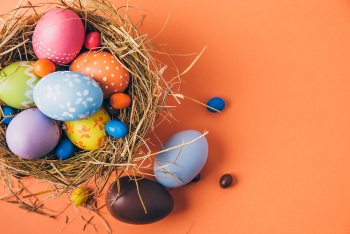 Happy Easter Day: Great Message, Inspirational Quotes and Best Wishes Happy Easter Day: Great Message, Inspirational Quotes and Best Wishes Easter is a Christian festival that celebrates the resurrection of Jesus Christ. Send your family members, your friend and your love best wishes by Easter ... |
April 21 - St. George's Day (Newfoundland and Labrador)
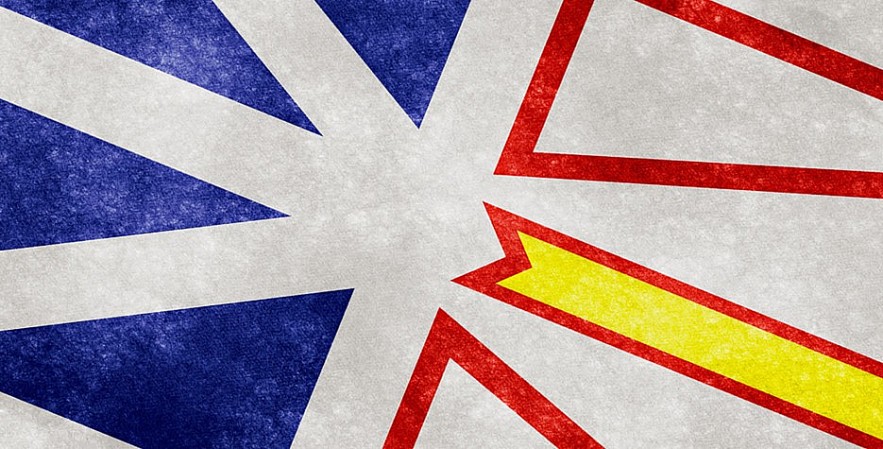 |
| St. George's Day in Newfoundland and Labrador |
The Monday closest to April 21, 2025 is St. George's Day, a government-designated paid holiday in Newfoundland and Labrador.
Since April 23 is widely believed to be St. George's day of death, the celebration of St. George's Day takes place on this day every year.
In addition, St. George is the patron saint of numerous European cities as well as the Republic of Macedonia, Georgia, Serbia, Bulgaria, England, and Georgia.
April 23 - Yom HaShoah, Jewish commemoration
Many Canadians observe Yom Hashoah, which is also known as Holocaust Remembrance Day. It commemorates the lives and heroism of Jewish people who died in the Holocaust between 1933 and 1945.
On Nisan 27, many Canadians, including Jews, observe Yom Hashoah. Many Jewish communities commemorate WWII Holocaust victims.
Israeli Masorti (Conservative Judaism) created Megillat HaShoah, a Yom HaShoah scroll and liturgy. Canadian, Israeli, and American Jewish leaders collaborated on this. Canada holds Yom Hashoah synagogue services with different rituals. Memorial candles and the Kaddish prayer for the dead are possible.
Students studying Jewish history watch Yom Hashoah educational programs during this time. A Holocaust-themed film or documentary about Holocaust survivors may be shown. These programs may include teaching materials.
May 1 - Yom HaAtzmaut, Jewish holiday
A lot of Jewish people in Canada remember Yom Ha'Atzmaut, which is another name for Israel's Independence Day. According to the Jewish calendar, the holiday is held every year on or around the fifth day of the month of Iyar.
To honor Israel's Independence Day, many Jewish communities, organizations, and activity groups in Canada hold fun events. On Yom Ha'Atzmaut, there may be a special class for beginners at evening dance parties. People can get refreshments at events that take place in a variety of places, such as Jewish temples.
Israeli music groups may put on special shows in cities like Vancouver or Toronto on or around Yom Ha'Atzmaut. "After parties" are sometimes held, and they may include speeches by well-known community leaders as well as chances to network or socialize.
May 11 - Mothers' Day, Observance
It is not a public holiday on Mothers' Day. It happens on Sunday, May 11, 2025, and most Canadian businesses are open on Sundays as usual.
On Mother's Day, a lot of Canadians thank their mothers and other mothers figures. Mother figures can be guardians, such as foster parents, mothers-in-law, stepmothers, and family friends. Now is the time to give thanks to mothers and other mother figures who have taken the time to look after them and support them through difficult times in life. In Canada, people thank fathers and father figures for their positive contributions on Father's Day, which is observed on the third Sunday in June.
On Mother's Day, some people make handmade goods, cook special meals, or give cards, flowers, or chocolates. Some accompany their mothers or other maternal figures to a movie theater, eatery, café, or park outing. Aside from jewelry, clothes, accessories, and gift cards for goods or services, some mothers and mother figures also receive unique gifts.
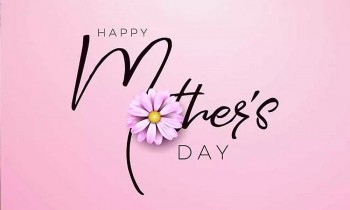 Mother's Day: Best Wishes, Quotes and Sweet Messages Mother's Day: Best Wishes, Quotes and Sweet Messages Mother's Day is a special day to honour and show love for your beloved moms, aunts, sisters, grandmothers... |
May 16 - Lag B'Omer, Jewish holiday
On the 18th of Iyar, many Jews in Canada observe Lag B'Omer. This observance marks the 33rd Omer day.
Since Lag B'Omer is not a federal public holiday in Canada, many events are held after school or work (if not on the weekend), usually in the afternoon or early evening. Government agencies, transit services, and schools keep their regular hours.
Many Canadian Jews celebrate Lag B'Omer because it ends Omer mourning. Many Canadian Jewish communities host Lag B'Omer parties. Outdoor bonfires are common, especially in sunny weather.
Street festivals and annual Lag B'Omer family barbecues or picnics with live music and entertainment are examples. Adults can socialize and kids can play with farm animals at many Canadian Lag B'Omer celebrations. Some Lag B'Omer celebrations for teens include paintball.
May 19 - National Patriots' Day (Quebec)
 |
| National Patriots' Day (Quebec) |
Queen Victoria's birthday is celebrated on the Monday before May 24 in most of Canada. The British monarchy has never been popular in Quebec. The province celebrates anti-British patriots and rejects the crown.
Until 2003, Quebec celebrated Fete de Dollard in honor of Adam Dollard des Ormeaux, the garrison commander of Ville-Marie, now Montreal, who died. Dollard and his expedition were killed in 1660 while ambushing the Iroquiois to prevent their attack on Ville-Marie.
In 2003, Quebec renamed the holiday National Patriots Day to emphasize patriotic struggles against the British empire for national recognition, political liberty, and democracy.
Many Quebec offices, banks, schools, and businesses are closed on National Patriot's Day. The day features commemorative and historic events, highlighting the contributions of patriots who shaped the province. Marches, parades, historical re-enactments, and musical concerts honor those who helped build the province.
Most people celebrate National Patriot's Day with friends and family by planting gardens, opening summer cottages, or drinking beer. Others spend the weekend in Quebec parks or natural areas.
Quebec City's Place d'Ýouville community square is transformed by actors and dancers reenacting the rebellion. They take the provincial flag to Maison Chevalier, an old port district museum and historic house.
On National Patriot's Day, the Montreal Musee Stewart offers guided tours of rebellion artifacts. The Gatineau festival features concerts, a parade, and a provincial flag raising.
Many Quebecers consider how different cultures affect the province and nation. The holiday celebrates diversity and patriotism by honoring those who fought for Quebec autonomy from British rule. Instead of celebrating a British queen, they honor those who died for freedom because they fought British rule.
May 19 - Victoria Day, Statutory Holiday (Federal workers; National except NS, PEI & QC)
To honor Queen Victoria, Victoria Day was first celebrated on the Monday before May 24.
The holiday is also known as “The May 24 long weekend” and “The May long weekend”. Popular names include “May Long” and “May two-four“. After Queen Victoria died in 1901, Victoria Day became a national holiday.
The Canadian Parliament decided to celebrate Victoria Day on the Monday before May 24th 51 years after the Queen's death. This change guaranteed Canadians a long weekend regardless of the holiday date. Despite being called May 24th, the holiday is now on the calendar.
King Charles III's birthday is celebrated on the holiday, which was originally established to honor Queen Victoria.
Canada is the only Commonwealth nation to celebrate Queen Victoria's birthday, despite its large foreign membership. Although some parts of Scotland celebrate the holiday, it is not a public holiday like in Canada.
Some Canadian provinces and territories don't celebrate Victoria Day. Nova Scotia, New Brunswick, Newfoundland, and Labrador do not observe the holiday. Quebec is also controversial because it rarely celebrates national holidays like its neighbors. National Patriots Day in Quebec honors Canadian rebels who died fighting the British.
One of the few days in the year where Canada celebrates its colonial history is Victoria Day. Government buildings like airports and military bases fly the British Union Jack and Canadian flag on this day. There are exceptions to this rule. The Union Jack should never replace the Canadian flag. The building is not required to fly the Union Jack flag or install a holiday flagpole if there is only one flag pole.
Many Canadians consider the holiday summer's start. Even some Canadians believe the holiday was a response to Memorial Day. This long weekend is when many Canadians start gardening. Cottage and vacation home owners often visit to prepare for summer.
Visitors are filling hotels and resorts over the long holiday weekend to enjoy the first summer weather. Algonquin and Rouge Park are popular weekend camping destinations for Canadians. Families across Canada can watch impressive fireworks displays each year. Canadians anticipate this weekend as the start of summer, whether at home or away.
May 29 - Ascension Day
Canada celebrates Ascension Day on Easter 40. According to the New Testament, it commemorates Jesus' ascension into heaven.
Some Canadian Christians attend Ascension Day church services to receive communion, pray, and sing hymns. Churches like the Roman Catholic Church and the United Church of Canada observe this event. This time of year, Sunday school kids may learn about Ascension Day.
June 2 - Shavuot, Jewish holiday
Shavuot is the second of three major Jewish holidays that focus on history and farming. A lot of Jewish people in Canada celebrate it. Passover and Sukkot are the other two. Shavuot is fifty days after Passover. In the Jewish calendar, Shavuot is on the sixth day of the month of Sivan.
Canadian Jewish communities celebrate Shavuot in many ways. Traditionally, dairy is eaten today. Cheesecake, goat cheese strudel, and cheese blintzes are dairy-based meals. Some revisit the Ten Commandments and contemplate their meanings during this time. Some people make fruit salad on Shavuot to honor the bikurim, the first fruits offered to the ancient Temple in Jerusalem.
Many Jews read Ruth and stay up all night to read the Torah. Some people take some of their annual vacation to avoid work on Shavuot. Some sources say Jewish custom limits Shavuot work to cooking, baking, transferring fire, and carrying.
June 7 - Eid al-Adha (Tentative Date)
Eid al-Adha is a significant annual Islamic observance for many Muslims in Canada. It is also known as the Feast of Sacrifice or Festival of Sacrifice as it commemorates Ibrahim’s (Abraham) willingness to sacrifice his son to God.
Muslims in Canada celebrate Eid al-Adha from the 10th to the 13th days of Dhu al-Hijjah. Many Muslims attend special prayer services during this time. Many people visit family and friends, exchange greetings and gifts, and donate to the needy. Eid al-Adha is about forgiveness and compassion.
The Muslim Association of Canada (MAC) hosts Eid al-Fitr and al-Adha festivals. An Eid Festival carnival features rides, shows, sports tournaments, and international cuisine. These events draw thousands, including leaders. Some politicians publicly wish Eid al-Adha celebrants. Days of celebrations are possible.
Annual pilgrimage to Mecca in Saudi Arabia precedes Eid al-Adha. Muslims worldwide must perform the Hajj once in their lives. Canadian Muslims may make this pilgrimage to Mecca before Eid al-Adha. The Feast of Sacrifice, Eid al-Adha, involves sacrificing a lamb to thank God for his mercy. Food is donated for charity.
June 8 - Pentecost, observance
Fifty days after Easter is when Christians celebrate Pentecost, also called Whitsunday. Its roots are in the Jewish tradition of the Festival of Weeks, but it also honors the moment Jesus ascended into heaven and the Holy Spirit descended upon his Apostles.
Although it falls on a Sunday, shops and businesses will remain closed as usual. It is not a public holiday in the United States or Canada.
June 9 - Whit Monday
There are a lot of Christians in Canada who celebrate Whit Monday, which is also called Pentecost Monday. It is the day after Pentecost, which is also called Whitney Sunday or Whit Sunday. The Christian Bible says that this time marks the anniversary of the Holy Spirit's descent on Jesus Christ's disciples.
Many Christians in Canada remember the events in the New Testament of the Christian Bible that happened after the Holy Spirit came down on Jesus' disciples on Whit Monday and Whit Sunday, also known as Pentecost.
Some church events that happen on Whit Monday are evening services and bible study meetings. Sunday schools may also have lessons that teach kids about how and why Whit Monday and Pentecost came to be and what they mean. A lot of churches see Whit Monday as part of Whitsun Week, also known as Whitsuntide, which also includes Whit Sunday, or Pentecost.
In Canada, Whit Monday is not a federal holiday, so most things in public life are the same as they are on any other Monday.
June 15 - Trinity Sunday
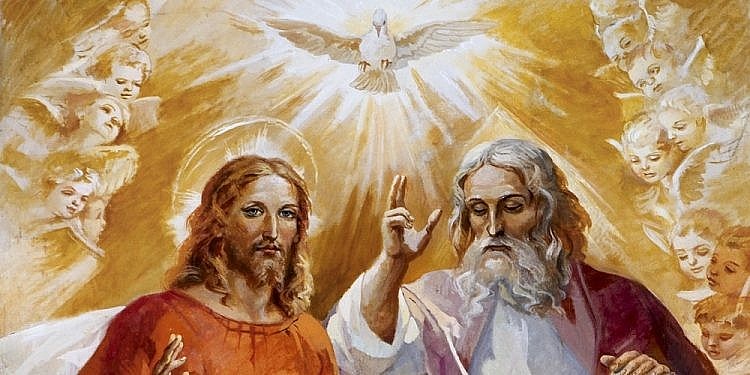 |
| Trinity Sunday in Canada |
Trinity Sunday is the first Sunday after Pentecost and is a holiday for many Christians in Canada. One of the few feasts that is celebrated as a creed rather than an event. It's also a sign of how the Trinity is one.
Trinity Sunday is a special day for many Christian churches in Canada. The idea of the trinity—that the Father, the Son, and the Holy Spirit are all one God—is at the center of these services. Some of the things that kids learn about the Trinity in Sunday school are through songs, poems, group discussions, and coloring pages. After the Trinity Sunday service, some churches may have social events.
June 15 - Fathers' Day, Observance
Although the actual date of celebration varies, Father's Day is an unofficial global celebration of fatherhood. It's a developing holiday, observed in an increasing number of nations these days as fathers are acknowledged for their contributions to childrearing and become more involved in the process.
However, due to the endless advertisements that precede the third Sunday in June, this holiday, like many others, has lost much of its true significance over time. We are inundated with promotions both online and off that ask us to buy dad golf clubs, smart phones, home theater systems, gift cards, or clothes. Much like other holidays, it's heavily commercialized.
Learn More: 10 Unique Birthday Gifts For Grandfather
June 19 - Corpus Christi
Many Canadian Christians, especially Roman Catholics, celebrate Corpus Christi for the Holy Eucharist. The Day of Wreaths and Feast of the Most Holy Body of Christ are other names for it.
Some Canadian Anglican churches celebrate Corpus Christi, but most are Roman Catholic. Some choirs perform Corpus Christi music during this season. Catholic schools and church-run Sunday schools may teach students about Corpus Christi's history and meaning. Some churches hold Corpus Christi processions and parties after church.
This day sees many Catholics receive Communion. Children often receive their first Communion on Corpus Christi. Christian believers accept consecrated bread and wine (or grape juice) as Jesus Christ's body and blood in the Eucharist. Corpus Christi is usually celebrated on the Thursday after Trinity Sunday, but some churches celebrate it on Sunday.
June 20 - June Solstice, Season
The June solstice in the Northern Hemisphere occurs when the Sun is directly above the Tropic of Cancer. The northernmost latitude it reaches annually. Southward movement resumes after the solstice.
June 21 - National Indigenous Peoples Day, Observance
 |
| National Indigenous Peoples Day |
Every June 21, Northwest Territories and Yukon observe National Indigenous Peoples Day as a statutory holiday to honor the cultures of the Inuit, Metis, and "First Nations."
The inclusion of an official holiday to honour the contributions made by Aboriginal groups to Canadian history, culture, and way of life was the result of a protracted and intensely fought campaign. The date, June 21, was selected for two reasons. First of all, since it is the summer solstice, temperatures in the Northwest Territories and other far northern regions of the country are higher than normal. Secondly, June 21st was already a traditional date for many aboriginal tribes to celebrate their heritage.
Summer solstice celebrations, barbecues, get-togethers with native singing and dancing, terrifying fire-extinguishing ceremonies, and traditional feasts featuring dishes like moose stew and flat, "fry (pan-fried) bread" are just a few of the many events that take place on National Indigenous Peoples Day.
June 23 - June Holiday (NL)
In Newfoundland and Labrador, June Day is a province-wide celebration. On the Monday closest to June 24th, it is observed.
June Day was formerly known as Discovery Day, honoring John Cabot's discovery of the province in 1497.
John Cabot did not 'discover' Newfoundland and Labrador when he set foot on its shores in 1497, as some who oppose the holiday have pointed out. Rather, he contributed to centuries of hostility between European settlers and Native Americans.
June Day is a temporary name, and before deciding on a new name for the holiday, the government will confer with the Indigenous groups in the province.
June 24 - St. Jean Baptiste Day (Quebec)
Saint John the Baptist was a Jewish preacher who baptized Jesus in the River Jordan. His feast day is June 24, which is also known as Saint Jean Baptiste Day. In Quebec and other parts of French Canada, it is a holiday. "La Saint-Jean" Day, "St. John the Baptist Day," "Fête nationale du Québec," and "Quebec's National Holiday" are some other names for January 31.
There is no school in Quebec, Canada on Saint Jean Baptiste Day, which is a public holiday. It's closed at the post office and many stores. Some places have shorter public transportation schedules, and in some places, like the province's rural areas, they may not run at all. If June 24 falls on a Sunday, people who work on Sundays get paid time off. People who don't normally work on Sundays will get paid time off on June 25.
There are many ways that Saint Jean Baptiste Day has changed since it was first celebrated in Canada in the 1700s. The holiday isn't seen as a big religious event these days. Instead, people in Quebec take to the streets to show their values and patriotism. Because of this, a lot of people think of Saint Jean Baptiste Day as the national day of Quebec. Many people in Quebec think of this holiday as not having anything to do with religion, but Saint Jean Baptiste is still the patron saint of French Canadians.
June 27 - Muharram/Islamic New Year (Tentative Date)
A lot of Muslims in places like Canada celebrate the beginning of the Islamic New Year on the first day of Muharram, which is the first month in the Islamic calendar.
People don't get off for Muharram, which is the Islamic New Year. It takes place on Friday, June 27, 2024, and in Canada, most stores are open as usual on Sundays.
During Muharram, Muslims in Canada can choose to fast, but they don't have to. During Muharram, a lot of Muslims also pray on their own time, including evening prayer. It is customary for some Islamic groups in Canada to hold lectures and meetings about the mourning of Husayn ibn Ali's (also called Imam Hussain) death in 680 CE. There are also people who read books about Islam to learn more about its teachings.
It is said that the most holy day in the month of Muharram is the Day of Ashura, also written as Ashurah. Today is the 10th day of Muharram, a month when many Sunni Muslims fast. A lot of Shi'a Muslims remember Husayn ibn Ali's death on this day in 680 CE. Many Muslims give to the poor on this day.
July 1 - Memorial Day (NL)
In Newfoundland and Labrador, Canada, on July 1, Memorial Day and Canada Day are celebrated at the same time. On Memorial Day, people in the province remember the brave actions of its veterans, especially those who fought in World War I.
July 1 - Canada Day, Statutory Holiday
Canada Day honors the country's birthday. 156 years ago, on July 1, 1867, the Constitution Act, formerly known as the British North America Act, was signed, establishing Canada as a new federation with its own constitution.
Most businesses are closed on Canada Day, a national statutory holiday observed in all provinces and territories. Of course, Canada Day is much more than just a date; this page merely provides you with the facts and a synopsis of its past.
Many cities and locations across the nation light up spectacular fireworks, which typically begin at 10 p.m. local time. Some families make it a point to watch these fireworks every year after spending the day participating in various Canada Day events and celebrations.
July 6 - Ashura (Tentative Date)
If there are local customs or sightings of the Moon, the date of an Islamic holiday may change. Holidays start at sundown the day before the official date. Since the Islamic calendar is based on the moon and days start at sunset, there may be a one-day difference based on when the Crescent Moon is first seen.
July 9 - Nunavut Day, Local holiday
Every year on July 9, Nunavut Day is observed as a regional statutory holiday in Nunavut, Canada.
As of 2020, Nunavut Day is a statutory holiday in the territory, which means that workers in sectors subject to its regulations will be entitled to a paid day off. As per a press release issued by the Nunavut government on Tuesday, this can encompass individuals employed by Nunavut-owned companies, supermarkets, and construction companies. The July 9th holiday was previously exclusive to Nunavut government workers.
On Nunavut Day, Nunavut is recognized as a distinct and exceptional territory within Canada. An important milestone in the creation of Nunavut, the 1993 Nunavut Land Claims Agreement Act, is commemorated and celebrated by Nunavummiut each year.
The day honours the Inuit people who live in Nunavut and their rich culture, heritage, and contributions. It's a chance to highlight the remarkable arctic landscapes, unusual wildlife, and tenacious Inuit communities. In addition, Nunavut Day serves as a reminder of the continuous efforts to uphold and safeguard the Inuit way of life as well as to promote tolerance and respect for Indigenous cultures across Canada.
July 14 - Orangemen's Day (NL)
 |
| Orangemen's Day (NL) |
In Newfoundland and Labrador, Orangemen's Day is observed as a public holiday. Most businesses and the general public are closed, and the day off is observed for the general public.
People with Protestant Irish or Scottish ancestry, especially those who endorse the Orange Order, typically celebrate Orangemen's Day. Orange Order Lodges organize parades in several parts of Ontario, especially Toronto, and Newfoundland and Labrador. Members of the lodges and their families march in these parades along a predetermined route while holding banners with the lodge name and Orange Order symbols.
Parades are frequently accompanied by marching bands. Following the parades, the lodges may plan "Times," which are get-together events for families that may include picnics, potluck dinners, or dancing. Orangemen's Day celebrations may take place in the winter in places where a large population is employed in the cod fishing industry, although most parades take place on a Saturday near July 12.
August 3 - Tisha B'Av, Jewish holiday
On the Jewish calendar, Tisha B'Av is the ninth day of the month of Av. A lot of Jewish people in Canada observe it. The destruction of the First and Second Temples in Jerusalem is one of the things that people remember on this day. If Tisha B'Av falls on Shabbat (Saturday), it is moved to the 10th of Av, Sunday.
On Tisha B'Av, a day of mourning, many Jewish people in Canada remember the violence and oppression that caused Jewish people to suffer throughout history. During Tisha B'Av, many Jewish communities follow different rules.
August 4 - Civic/Provincial Day (NT, Nunavut)
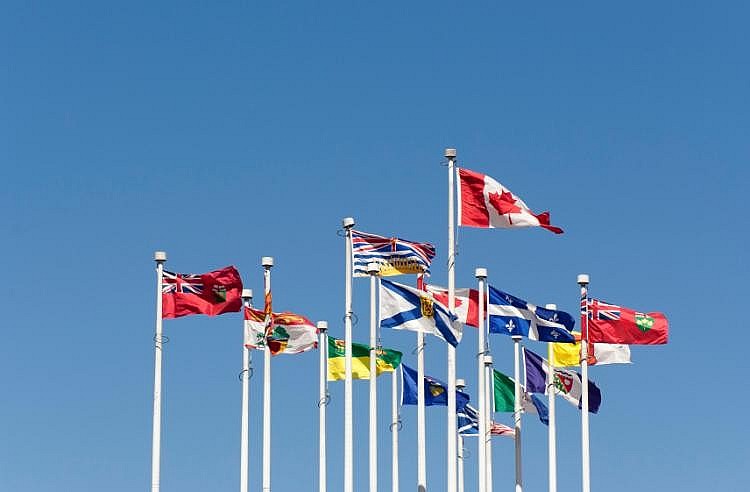 |
| Provinces and territories across Canada have a civic or provincial holiday on the first Monday in August |
In many parts of Canada, the first Monday of August is a holiday. Different provinces and territories have different laws about whether or not it is a legal holiday. It's also known as the August Holiday, the Civic Holiday, Provincial Day, or other names in different places, like Terry Fox Day in Manitoba.
There are many events on the first Monday of August and, in some places, all through the first week of August to honor local culture, history, and accomplishments. A lot of celebrations are small and are put together by people in the community. Making and distributing birthday cakes for the province, sports events, and group meals like breakfasts, barbecues, lunches, and dinners are some of these things. Professional fireworks shows, road races, and cultural festivals are examples of bigger events.
August 4 - Saskatchewan Day
Saskatchewan Day is a public holiday in Saskatchewan, where it is a day off for the general population, and schools and most businesses are closed.
August 4 - Terry Fox Day (Manitoba)
August 4 - New Brunswick Day
Canada's province of New Brunswick has a holiday called New Brunswick Day every August 1. It gives people a chance to make their communities stronger by honoring their history, culture, landscape, and accomplishments. There are "birthday" parties for the province in many towns.
The New Brunswick Day merit awards are given to people, businesses, and groups that work hard to make life better in their city, town, or village on the first Monday of August. A lot of places also have birthday parties for their province.
In some places, local foods like Atlantic salmon or fiddleheads (the unfurled fronds of a fern) may be used in cooking competitions. There may also be road races or military displays.
August 4 - British Columbia Day/Civic Day
Civic Day and British Columbia Day fall on the same day and are observed similarly. It was established in 1974 as a day to celebrate the history and pioneers of the province.
Every province in Canada, with the exception of Quebec, Newfoundland and Labrador, Ontario, and Yukon, observes a holiday on the first Monday in August.
Although the holiday is sometimes referred to as the "August Long Weekend," different regions have different official and informal names for it.
August 4 - Natal Day (Nova Scotia)
August 4 - Heritage Day (Alberta)
In Alberta, Heritage Day is observed on the first Monday in August as an optional general holiday.
Many Albertans use this day as an optional holiday to celebrate the province's heritage, even though it is not a statutory holiday and businesses are free to decide whether or not to observe it as a general holiday.
August 6 - The Royal St John's Regatta (Regatta Day) (NL)
August 15 - Assumption of Mary
Assumption Day is celebrated on or around August 15 in many countries, particularly in parts of Europe and South America.
Learn more: Assumption Day (15 August) Around the World: Date, Meaning, History and Celebration
August 15 - Gold Cup Parade (PE)
August 18 - Discovery Day (Yukon)
In the Yukon, August 3rd is designated as Discovery Day, a provincial holiday. Another name for it is "Klondike Gold Discovery Day."
In other parts of Canada, the Civic Holiday on the first Monday in August is replaced by Discovery Day.
On Civic Day, banks and government offices usually close, and public transportation may operate on a reduced schedule, though there may be regional variations.
September 1 - Labour Day, Statutory Holiday
In Canada, Labor Day is observed on the first Monday in September each year. While some choose to spend their final celebration at their summer getaway location, many people use the weekend to travel and see family. The holiday is observed in the cities with parades and fireworks. Impressive fireworks shows are available for families to see in Niagra Falls, Whistler, Montreal, Edmonton, and other Canadian locations.
Every year around Labor Day, there's the Canadian International Air Show. Aircraft and pilots from the US, Canada, and other nations are featured on the show. Throughout the weekend, visitors can witness planes from all over the globe pulling off amazing stunts over Lake Ontario. Although it is free to enter the airshow, fans frequently pay extra for VIP packages in order to get the best viewing spots. The airshow's royal patron, Prince Andrew, Duke of York, is another indication of Canada's Commonwealth membership.
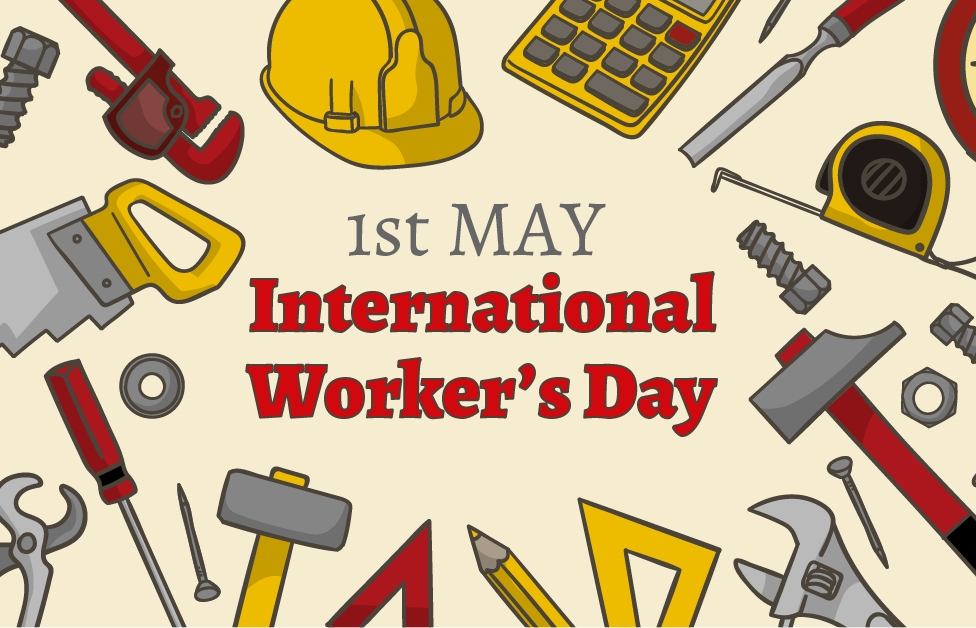 Workers' Day (Labour Day): History, Meaning, Celebrations, Wish and Quotes Workers' Day (Labour Day): History, Meaning, Celebrations, Wish and Quotes International Workers' Day or Labour Day is gonna be celebrated on this first day of May to honour the struggles and gains made by workers ... |
September 5 - Milad un Nabi (Mawlid) (Tentative Date)
On Eid Milad ul-Nabi (Mawlid, Milad-un-Nabi), many Muslims in Canada honor the Prophet Muhammad's birth and life or mourn his death. The event takes place in the Islamic month of Rabi' al-awwal. For this reason, some Muslims fast, hold parades, special prayers, or conferences.
September 22 - September Equinox, Season
The September equinox is when the Sun moves from north to south across the celestial equator, which is a made-up line in the sky above Earth's equator. Most years, this takes place on September 22, 23, or 24.
September 23 - Rosh Hashana, Jewish holiday
Many Jewish Canadians celebrate Rosh Hashana, the Jewish New Year. On the first day of Tishrei (or Tishri), the seventh month in the Jewish calendar, Rosh Hashana begins and may last two days. Also known as the Day of Remembrance or Shofar Blowing.
Jewish Canadians celebrate Rosh Hashanah, the Jewish New Year, for two or one day. It involves family gatherings and special meals. Rosh Hashana begins at nightfall the day before. Family and friends celebrate after the evening prayer to reflect on the past and start the New Year. Jewish Canadians celebrate Rosh Hashana with challah bread, pomegranates, and honey-dipped apples.
Jewish belief holds that Rosh Hashana, unlike the secular New Year (January 1), is a time when God evaluates a person's past actions. It's also a time for optimism. Before this event, many Canadian Jews ask friends and family for forgiveness. Rosh Hashana greeting cards are also sent at this time.
Another Rosh Hashana tradition is the tashlikh, which involves praying near flowing water and "throwing sins away" with bread pieces. At this time of year, the synagogue blows the shofar like a trumpet. Jewish people may take the day off work or arrange time off to observe Rosh Hashanah, when no work is allowed.
Rosh Hashana is not a Canadian holiday. Some Jewish organizations are closed or have limited hours on Rosh Hashana.
September 30 - National Day for Truth and Reconciliation, Statutory Holiday
 |
| National Day for Truth and Reconciliation |
In accordance with one of the many recommendations made by the Truth and Reconciliation Commission, a new statutory holiday is observed to remember the legacy of residential schools. Every year on September 30, it is observed.
Not every day is a public holiday. This new holiday will only be observed by closing federally regulated workplaces, which includes the federal government, banks, post offices, and so on.
Originally, because September 30 is currently observed as Orange Shirt Day, indigenous communities were against the idea. Rather, June 21, the National Indigenous Peoples Day, was designated as the alternate date. However, as Canada Day is just ten days away, this would put the two national holidays too close to one another.
October 2 - Yom Kippur, Jewish holiday
Yom Kippur is the Jewish Day of Atonement. Many Canadian Jews fast and pray on this day. It emphasizes repentance and atonement. Yom Kippur falls on the 10th of Tishrei (Tishri).
Many Canadian Jews believe God seals their fate on Yom Kippur for the coming year. This holiday involves fasting and prayer. Repenting sinners are believed to have a happy New Year. Many Jews attend synagogue this season.
The 25-hour fast begins the night before Yom Kippur. Nightfall on Yom Kippur ends it. If health or life is threatened, restrictions may be lifted. Many Jewish Canadians attend Yom Kippur services with songs and readings. Some services include memorial prayers. After the fast, many Jews celebrate with a pot luck feast.
Since Yom Kippur has the same work restrictions as the Sabbath, some Jewish Canadians may take the day off or organize time off.
October 4 - Feast of St Francis of Assisi
The feast of St. Francis of Assisi is held every year on October 4 in many churches in Canada. This holiday honors the life of St. Francis, who was born in the 1100s and is the Catholic Church's protector saint of animals and the environment. A lot of people "bless" their pets on this day.
October 7 - First day of Sukkot, Jewish holiday
Many Canadian Jewish communities celebrate the first day of Sukkot (Succot, Succoth, Sukkoth). About seven days pass during the Feast of Tabernacles. It begins the week of the 15th day of Tishri (Tishrei), the Jewish new year.
Jewish Canadians construct sukkahs, temporary booths where they eat, sleep, and use during the seven-day Sukkot holiday. Many Jews skip work on the first day of Sukkot because it's considered the Sabbath. Jewish people may take the first day of Sukkot off work. Some don't use electricity because they believe fire is forbidden on the Sabbath. Work is allowed on the other Sukkot days.
In Canada, many Jewish communities practice a mitzvah, which involves waving the four species of plants and reciting a blessing. This deed is done daily during Sukkot (except the Sabbath).
The first day of Sukkot is not a Canadian holiday. However, many Jewish businesses, schools, and organizations may close or reduce service.
October 13 - Hoshana Rabbah, Jewish holiday
A lot of Jewish people in Canada mark Hoshana Rabbah (or Hoshana Raba) as the last day of Sukkot (also written as Succoth or Sukkoth). The holiday of Sukkot, which is also called the Feast of Tabernacles, ends today. The Jewish holiday Sukkot is celebrated during the week beginning on the 15th day of Tishri (or Tishrei), the first month of the year.
Many Jewish people in Canada stop living in the sukkah on Hoshana Rabbah, but some traditionalists stay in this makeshift structure until Shmini Atzeret, which comes after Hoshana Rabbah. A lot of Jewish people in Canada believe that Hoshana Rabbah is the last day of the divine judgment, on which people's New Year's fates are decided. The Hoshanot prayers are said, and a special ceremony with the "four species" (plants) is carried out.
For the people of Canada, the last day of Sukkot is not a bank holiday. On the other hand, a lot of Jewish businesses, schools, and groups may be closed or provide less service.
October 13 - Thanksgiving Day, Statutory Holiday
The second Monday in October is when Thanksgiving Day is observed. Since the Canadian parliament established it as a holiday in 1879, it has been observed.
Since 1879, people have been celebrating Thanksgiving Day. While most Canadian provinces and territories observe the holiday as a statutory one, the provinces along the Atlantic coast—Prince Edward Island, New Brunswick, Newfoundland and Labrador, and Nova Scotia—only observe it as an optional one.
The holiday gives people in Canada a three-day weekend, and it's customary to celebrate with a hearty, traditional meal. The holiday is not as popular as its US counterpart, but it is typically enjoyed with friends and family.
Canadians typically spend the long weekend celebrating Thanksgiving with their families and friends, eating a substantial traditional meal. A whole turkey is frequently roasted for the meal, along with customary sides like mashed potatoes, Brussels sprouts, carrots, and stuffing. One of Canada's favorite Thanksgiving customs is pumpkin pie, but pecan, apple, or sweet potato pies are also frequently served as a dessert.
October 14 - Shemini Atzeret, Jewish holiday
October 15 - Simchat Torah, Jewish holiday
October 18 - Healthcare Aide Day (BC, Manitoba)
October 20 - Diwali/Deepavali, Observance
November 13 will be the date of Diwali in 2023. Known by another name, Deepavali, is an Indian Festival of Lights that takes place over five days in the Hindu month of Kartika, which is typically observed in October or November of the year.
Hindus celebrate the festival, but Jains, Buddhists, and Sikhs also celebrate Diwali in their own ways. It honors the triumph of light over evil.
Since Diwali is not a public holiday, businesses and schools are open as usual.
October 31 - Halloween, Observance
Although Halloween is not a legally recognized holiday, its popularity has led us to dedicate a page to it. Not only do kids enjoy dressing up, but adults are also getting into the Halloween spirit more and more—some of us even go so far as to outfit our pets. When you are asked to supply costumes for every member of the household, there are many things to take into account.
Read More: Top Pumpkin Faces to Decorate House at Halloween
November 1 - All Saints' Day, Observance
In many Roman Catholic, Anglican, and Protestant churches, All Saints' Day is a time to honor all Christian saints, especially those who don't have their own special feast day. It's held every year on November 1 in many churches in the west, and on the first Sunday after Pentecost in many churches in the east. All Hallows' Day, All-Hallomas, or All-Hallows' Tide are some other names for it.
November 2 - All Souls' Day, Observance
On All Souls' Day, people give to the poor and pray for the dead. The goal is for people who are still alive to help those who are in purgatory. Many churches in the east celebrate All Souls' Day before Lent and the day before Pentecost, while many churches in the west celebrate it every year on November 2.
November 2 - Daylight Saving Time ends
November 8 - National Aboriginal Veterans Day, Observance
November 11 - Remembrance Day, Observance
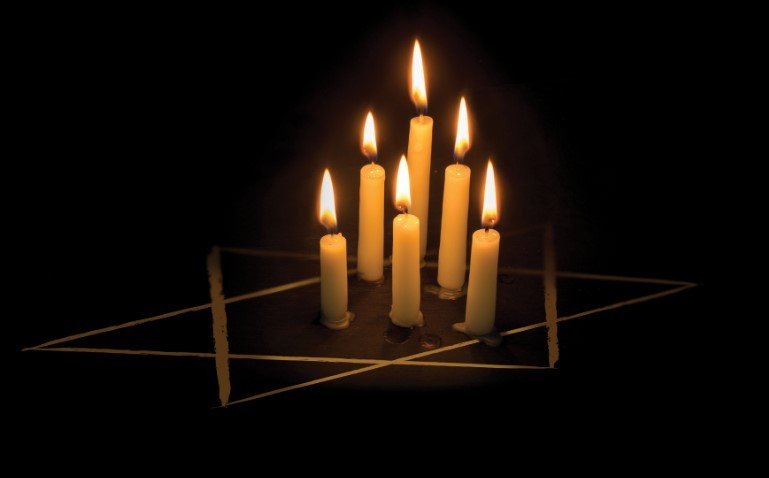 |
| Remembrance Day |
Every year on November 11, Remembrance Day is observed to remember the Canadian military personnel who gave their lives in battle. Canadians have a chance to consider the sacrifices made by their countrymen in the First World War and other wars.
The purpose of this somber memorial holiday is to serve as a reminder of the atrocities associated with war. Every year on November 11, we observe Remembrance Day. In addition, the First World War came to an end on this day of the Armistice. One common way that Canadians honor those who serve in the armed forces is by participating in various Remembrance Day events.
November 30 - First Sunday of Advent, Observance
On the first Sunday of Advent, many Canadian Christians celebrate Advent. It begins the western Christian year. Duration ranges from 22 to 28 days, beginning on the Sunday closest to St. Andrew's Day and lasting through three Sundays until Christmas Day.
Many Canadian churches prepare Advent liturgies now. Some Presbyterian churches have a liturgy for each Advent Sunday from the first to Christmas. Advent candle liturgies emphasize hope, peace, joy, and love. Other churches may host Advent dramas or programs with congregational participation.
Farms and rural shops sell fresh Advent wreaths. Some people buy Advent wreaths with different-colored, sized, and designed candles. On the first day of Advent, people can give children gifts. Advent activity books or calendars with stickers for each day until Christmas are good gifts.
Many eastern Christian churches start the church year on September 1, so Advent begins earlier than in western churches. Nativity Fast, a 40-day eastern Advent, is equivalent.
December 8 - Feast of the Immaculate Conception
The Feast of the Immaculate Conception is celebrated by many Christians in Canada on or around December 8. This is especially true for Catholics.
Some Canadian churches, mostly Catholic ones, hold special services, called masses, to honor the Feast of the Immaculate Conception on December 8 or close to it. The feast is based on the idea that the Virgin Mary was born without any sin. A lot of churches that celebrate the Feast of the Immaculate Conception are busy getting ready for it before it happens.
Around this time of the year, a lot of schools that are run by churches teach their students about the holiday and what it means. Some people write feature articles about the event for religious magazines or newspapers.
December 11 - Anniversary of the Statute of Westminster, Observance
In Canada, the Anniversary of the Statute of Westminster is celebrated every year on December 11 to honor the day the statute was made. Today, both the Canadian flag and the Royal Union flag are flown at the same time.
On this day, people, businesses, and government offices all over Canada celebrate the Anniversary of the Statute of Westminster. From dawn till dusk, the Union Jack and Canada's national flag are flown. The Union Flag is also called the Royal Union Flag. You can see the flags at airports, military bases, federal buildings, and other government buildings.
December 15 - First Day of Hanukkah, Jewish holiday
There are a lot of Jewish celebrations in Canada on the first day of Hanukkah, which is also known as Chanukah or the Festival of Lights. Hanukkah is a Jewish holiday that lasts for eight days and remembers how hard the Jewish people fought for religious freedom.
In Canada, the first day of Hanukkah is not a national holiday. There are Jewish schools that have breaks around the same time as Hanukkah.
Canada's Jewish communities celebrate the start of Hanukkah on December 25, which is the 25th day of the Jewish month of Kislev. From the 25th day of Kislev to the 2nd day of Tevet, which is eight days, people celebrate Hanukkah. An extra blessing is said at sunset on the day before the 25th of Kislev, which is the first night of Hanukkah (or Chanukah). A lot of Jewish people light the chanukkiyah, which is another name for the hanukiah.
People give gift baskets to each other during Hanukkah because it's a time to give gifts. There are groups that plan events for kids, like a Hanukkah party. At these events, people often sing, act out plays, and have fun with the dreidel, which is a toy used for games. Many Jewish Canadians cook and eat foods like potato cakes and other fried breads that are fried in olive oil. During Hanukkah, it is also customary for the prime minister of Canada to light a candle with everyone else in the country.
December 21 - December Solstice, Season
December 22 - Last day of Hanukkah, Jewish holiday
The last day of Hanukkah is seen as the end of the holiday in many Jewish communities in Canada. The Jewish holiday Hanukkah, also called the Festival of Lights, lasts for eight days and is a time to remember how hard the Jewish people fought for religious freedom.
In Canada, the last day of Hanukkah is not a national holiday. A lot of Jewish schools have their break around the same time as Hanukkah.
The eighth day of Hanukkah is the last day of the holiday. It's also called Zose Hanukkah, Zos Hanukkah, or Zot Hanukkah. Today is the second day of the Hebrew month of Tevet, and Jews believe that this is the day of the great miracle of oil. It's a very important day because it marks the end of Hanukkah. It's fully lit up by the end of Hanukkah. The hanukiah is a type of candelabrum.
For Jewish people all over the world, including those in Canada, Hanukkah is a happy time. Around this time, people sing and play the dreidel, and there are also games, concerts, and plays. A lot of people like to eat during Hanukkah, even food that is fried in oil. When people think of the miracle of the oil that lasted for eight days, they often eat potato latkes that have been fried in oil.
December 24 - Christmas Eve, Observance
December 25 - Christmas Day, Statutory Holiday
December 25 is designated as Christmas Day in Canada, and it's one of the most widely observed holidays there.
The ten provinces and three territories that make up Canada are home to a diverse population of people from many different ethnic and religious backgrounds. Canada's multicultural population has led to a corresponding diversity in Christmas celebrations. However, there are also a lot of shared customs that are frequently observed with the US.
In Canada, families find it convenient to get together for celebratory meals and quality time together because Christmas Day is a public holiday and paid time off from work. On Christmas Day, lunch is typically the main course. Main courses include roast goose or turkey, side dishes of vegetables like potatoes, turnips, or squash, and desserts like plum pudding and cranberry sauce.
December 26 - Kwanzaa (first day), Observance
Kwanzaa is a holiday that lasts for a week and celebrates African traditions and culture. Every year, it takes place between December 26 and January 1. Maulana Karenga, an African-American leader, came up with the idea for this holiday, which was first observed in Canada in 1993.
In 2024, Kwanzaa's first day falls on the same day as Boxing Day, which is a public holiday in two provinces and two territories. This means that businesses and schools may be closed.
A holiday called Kwanzaa celebrates the culture and traditions of people who are African. It is celebrated by people from many African countries and their children and grandchildren. Each year, people celebrate Kwanzaa for a week, and at the end, they have a feast and exchange gifts. Candles are lit and drinks are poured during the celebrations. When someone pours a drink into a god as an offering, this is called a libation. A wooden unity cup is used to pour the drinks during Kwanzaa.
During a Kwanzaa ceremony, people often play music and drums, think about the Pan-African colors of red, green, and black, and talk about some part of African history. The traditional clothes that women wear are often brightly colored. During the celebrations, some cultural groups put on special shows or performances with art that has an African influence.
At first, people who celebrated Kwanzaa didn't add any parts of other holidays to their celebrations. But over the past few years, it's become more common for people to combine parts of Kwanzaa with Christmas or New Year's celebrations. At the same time, a family might have both a Christmas tree and a Kwanzaa candle stick in their home. At this time of year, this lets them include both Christian and African traditions in their lives.
December 26 - Boxing Day, Statutory Holiday
Every year on the day after Christmas, people celebrate Boxing Day, which is now seen as an extension of Christmas festivities.
Giving to people in need or those who have assisted you in some way throughout the year is the fundamental "theme" of Boxing Day. This specifically pertains to workers and anyone who provided you with business services the year prior, though it is not exclusive to these categories.
First of all, the custom of giving on the day following Christmas is still observed by Canadians. Mail carriers, newspaper delivery boys, barbers, house cleaners, gardeners, firefighters, and other workers receive little gifts or bonuses from them. A few also lend a hand at nearby food banks, soup kitchens, and charitable organizations. Lastly, Boxing Day is when many people arrange their charitable donations for the upcoming year.
Getting together and celebrating with loved ones is another crucial component. The menu frequently consists of cold-cut ham, stir-fries, roasted potatoes, and leftover Christmas turkey in all its forms.
December 31 - New Year's Eve, Observance
Along with December 31, which is the last day of the year, December 31 is also New Year's Eve.
In places that still use the Julian Calendar, January 13 is New Year's Eve.
Around the world, people traditionally celebrate New Year's Eve with fireworks at 00:00 in their local time zones.Also, the Canadian tax year ends today. An important event or party for many people marks the end of one year and the beginning of the next.
Public schools, stores, and other businesses are open on December 31; it is not a holiday. On the other hand, they might close earlier than usual. Some bars, restaurants, and clubs may have different hours and rules for getting in than usual. In the morning and early afternoon, public transportation usually runs as normal. However, in the late afternoon and early evening, services may be slowed down or shut down completely. People who want to safely get home from New Year's celebrations may be able to use extra transportation in some big cities late on December 31 and early on January 1.
On New Year's Eve, people of all ages get together to celebrate the end of one year and the beginning of the next. You can have anything from a small get-together with family and close friends in someone's home to a huge street party with live music, dancing, and even fireworks for everyone to see. A lot of things happen from the middle of the evening on December 31 to the early hours of January 1.
As the clock strikes midnight, some people pop open bottles of champagne or sparkling wine and raise a glass to the New Year and everyone's health. Some people take short trips to enjoy the beauty of Canada's nature at its winter peak or to do winter sports like skiing and snowboarding. Some people spend the night on a frozen lake with their best friends in the country in northern Canada, especially in Quebec. They fish through holes in the ice.
Conclusion
Canada’s diverse cultural heritage is reflected in its holidays and observances, offering numerous opportunities to celebrate, reflect, and come together as a nation. Whether through traditional public holidays or unique regional celebrations, 2025 promises a year of rich and varied festivities across the country.
 India Calendar 2025 - Full List of National/Regional Public Holidays: Dates and Celebrations India Calendar 2025 - Full List of National/Regional Public Holidays: Dates and Celebrations As we approach the year 2025, it's important to be aware of the various national and regional public holidays that will be observed across India. ... |
 2025 Calendar for Asian Countries with the Public Holidays 2025 Calendar for Asian Countries with the Public Holidays Check out the Calendar 2025 for Every Asian Country or Territory with the Public Holidays. |
 2025 UK Calendar - Full List of Public Holidays And Observances: Dates and Celebrations 2025 UK Calendar - Full List of Public Holidays And Observances: Dates and Celebrations Whether you are planning a vacation, organizing events, or simply looking to make the most of your time off, this comprehensive guide provides all the ... |

